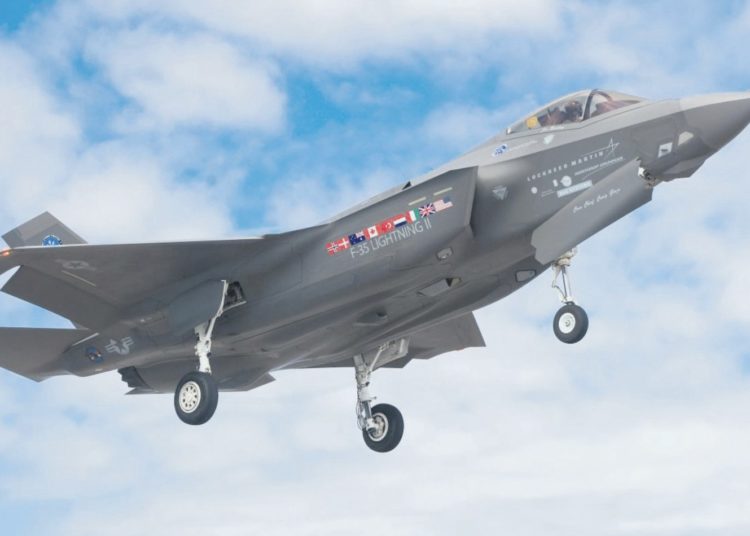Turkey will face debilitating sanctions by the United States and be denied ownership of a sophisticated new generation of warplanes if it goes ahead with the delivery of Russian S-400 long range missile batteries.
That is the most likely outcome if President Recep Tayyip Erdoğan moves forward with the Russian deal, vowing to finalize it despite threats of sanctions from Turkey’s most powerful NATO ally, according to a bipartisan bill introduced by US senators on March 28, 2019.
The proposed legislation, introduced by Republican Senator James Lankford and co-sponsored by Democrats Jeanne Shaheen and Chris Van Hollen and Republican Thom Tillis, will prohibit the transfer of F-35 fighter aircraft to Turkey until the US government certifies that Ankara will not take delivery of the Russian missiles.
Titled the “Protecting NATO Skies Act of 2019.” the bill bars any funding for the transfer of F–35 aircraft to Turkey, prohibits the funding for the transfer intellectual property or technical data necessary for or related to any maintenance or support of the F–35 aircraft and holds the funding for the construction of a storage facility for, or otherwise facilitate the storage in Turkey of, an F–35 aircraft transferred to Turkey.

Several Turkish defense companies including state-owned enterprises are part of the trillion-dollar F-35 fighter jet program, and Turkey is expected to generate some $1 billion from participation in the manufacturing of parts for the F-35. The sanctions bill would have a crippling effect on these companies as well. The United States strongly objects to Turkey’s purchase of Russian missiles on the grounds that it would compromise the security of NATO.
The bill gives US President Donald Trump an option to waive sanctions if he guarantees to the US Congress that Turkey does not plan to accept delivery of the S-400 air defense system.
The sanction was justified on the grounds that Turkey’s purchase of Russian missiles would fall within the scope of the 2017 Countering Russian Influence in Europe and Eurasia Act as it would amount to a significant transaction within the meaning of the law. The bill also warned that such a purchase would endanger the integrity of the NATO alliance and adversely affect ongoing operations of the US Armed Forces. It also added that the purchase would significantly increase the risk of compromising US defense systems and operational capabilities and would result in a significant impact to defense cooperation between the US and Turkey.
The US senators asked Trump to impose and apply sanctions under the 2017 act with respect to any individual or entity determined to have engaged in such a significant transaction. That means President Erdoğan, who led the executive committee of Undersecretariat for the Defense Industry (SSM) to decide on the purchase of the Russian missiles, as well as the military and defense chiefs who play a key role in the procurement decisions of the SSM will be designated under the US sanctions. It would negatively impact the foreign partnerships of the SSM and other defense firms in Turkey as many foreign partners would be reluctant to engage with sanctioned firms and entities in Turkey.
The bill was referred to the Senate Foreign Relations Committee for review.
US Secretary of State Mike Pompeo stated last week that Turkish officials were told they could also face retribution under Countering America’s Adversaries Through Sanctions Act (CAATSA) for buying the S-400s.

In December 2018 the US offered Patriot missile batteries to Turkey as an alternative to the Russian S-400 system, but the issues of offsets and technology transfer remain unresolved. According to a US State Department notification to the US Congress on December 18, 2018 by Andrea Thompson, under secretary of state for arms control and international security, “The purchaser requested offsets. At this time offset agreements are undetermined and will be defined in negotiations between the purchaser and contractors.”
“The prime contractors will be Raytheon Corporation in Andover, Massachusetts, and Lockheed-Martin in Dallas, Texas,” she told Bob Corker, the then-chairman of the Senate Foreign Relations Committee. F-35 fighter jets are also manufactured by Lockheed-Martin.
The issue of offsets, or co-production, was certainly nothing new as Turkey and the US have failed to come up with an agreement on terms for nearly a decade. Judging from Turkish officials’ remarks on the proposed Patriot sale, not only offset options but also credit terms and delivery time are also among the unresolved issues.
On April 15, 2019 Defense Minister Hulusi Akar told an audience at a Washington conference that the US should not impose sanctions on Turkey over the Russian missiles because Turkey is not an adversary of the US.

In 2013, Turkey chose to purchase China Precision Machinery Import and Export Corp FD-2000 missiles in a $3.4 billion deal, prompting US and Western concerns about the security and the compatibility of the weaponry with NATO systems. Two years later, the decision was cancelled by the Turkish government.












